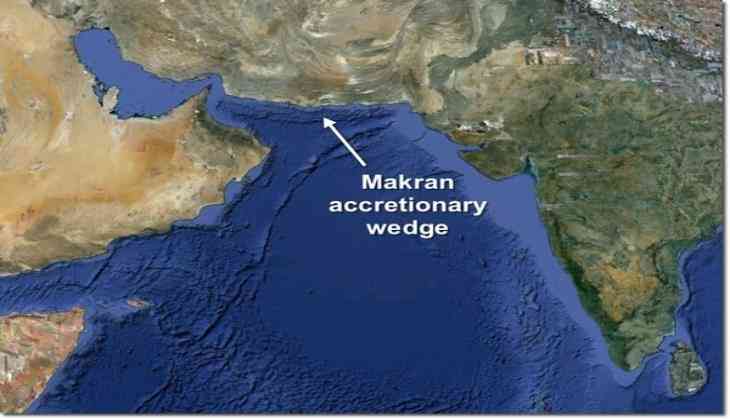
Pakistan's Gwadar Port, which is being upgraded by the Chinese as part of the multi-billion dollar China-Pakistan Economic Corridor (CPEC) project, could face a geographical catastrophe in the not too distant future, according to scientists of both countries.
According to a South China Morning Post report, the Makran Trench, which is located off the southern coast of Pakistan, is earthquake prone, and therefore, could damage Gwadar Port should there be a tectonic disturbance.
The Makran Trench is the meeting point for two tectonic plates and is close to Gwadar, a deep-sea port.
The potential natural calamity to the facility that has been leased to China for 40 years could undermine Beijing's ambitions to revive trade from China through Asia to Africa and Europe.
Chinese and Pakistani scientists have teamed up to survey the trench that is a seismically active zone in the Arabian Sea, where one plate is inching beneath the other in a "subduction zone".
The last major earthquake to hit the trench was a magnitude 8.1 quake in 1945, which triggered a tsunami that battered Iran, Pakistan, Oman and India, and killed around 4,000 people. Last year, a 6.3-magnitude quake hit the area.
According to the SCMP report, the quest is to get a better understanding of the subduction zone, which scientists say is unusual in part because it has a deposit of soft sediment several kilometres thick. Roughly 40 researchers from both countries are onboard an Experimental 3 vessel for the last month, lowering instruments into the waters to do what they call a "CT scan" of the Earth's structure.
The expedition is a joint effort by the South China Sea Institute of Oceanology in Guangzhou and the National Institute of Oceanography (NIO) in Pakistan. It was funded largely by the Chinese government-funded Chinese Academy of Sciences, the paper quoted Asif Inam, NIO director general, as saying.
The threat of an earthquake near the port is a big concern for both countries.
The facility gives China access to waterways through which about 40 per cent of the world's oil passes and is the centrepiece of the USD 62 billion CPEC, linking Gwadar to Xinjiang in China.
The corridor is also part of Beijing's sprawling "Belt and Road Initiative", a vast infrastructure and trade programme to project China's influence abroad.
"There's a whole lot at stake. The port, if fully developed and operationalised, can be a critical asset for Pakistan, and there's no nation that Pakistan would be more comfortable entrusting it to than its close friend China. Still, given issues of proximity and general vulnerability - Pakistan doesn't cope or respond well to natural disasters, given a lack of resources and incapacity - there's certainly reason to believe that intense earthquake activity would pose a clear and present danger to Gwadar," the paper quoted Michael Kugelman, a senior associate for South Asia at the US-based think tank Wilson Centre, as saying.
Developments at the port have caused unease in India, according to Kugelman, especially with reports that Gwadar will be the site for Beijing's second overseas military base.
"China, India, and Pakistan are on a collision course. This isn't to say we're about to see conflict, but escalations in tensions are highly likely as China steps up its activities in the region, and particularly in Pakistan," he adds.
If China built a naval base in Gwadar, as reports had suggested, it could trigger even greater tensions with India, he said.
Zhang Jiadong, director of South Asian studies at Fudan University in Shanghai, said China's focus should not be on India, but on solidifying its relationship with Pakistan and ensuring the success of their joint projects.
--ANI


